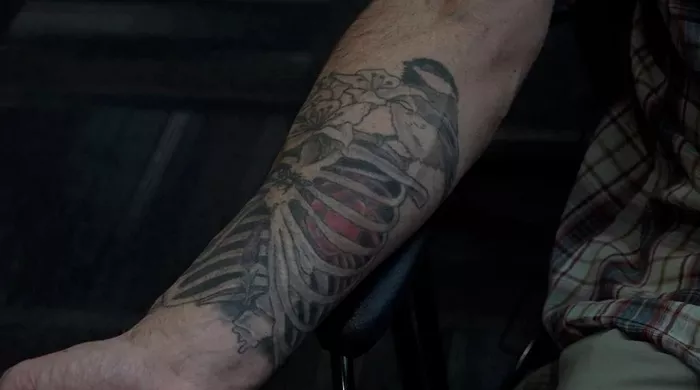Tattoos have long been a staple of self-expression in Central Oregon, with many individuals flocking to local studios to showcase their body art. While tattoos are widely embraced, a more unconventional and controversial trend is emerging: cremation tattoos. These tattoos, which blend the ashes of a loved one with ink, are sparking debates among both tattoo enthusiasts and professionals. Some artists find the concept troubling, while others are more open to the idea.
“I never got to hold my daughter,” shared Joshua Lohnes, reflecting on the loss of his unborn child. “She was never in this world for me to hold.”
Lohnes, who faced an incredibly painful grieving process after the loss of his daughter, found solace in an unexpected way. He explained that after his wife experienced a difficult pregnancy, they discovered their baby had a genetic disorder, and they ultimately lost their child. Years later, the grief still weighed heavily on him, and he sought a way to cope with his loss.
“My wife and I got pregnant in our mid-30s, and halfway through, we found out our daughter wouldn’t survive,” Lohnes said. “It was an incredibly tough grieving process, and I didn’t know how to move past it.”
Four years after his daughter’s death, Lohnes still struggled with how to find closure. Seeking something tangible to memorialize her, he turned to cremation tattoos.
While mixing ashes with ink isn’t universally accepted, an increasing number of tattoo artists are discovering a growing demand for this deeply personal art form. Some believe it provides a unique way for individuals to stay connected with their loved ones.
“I see people who want to feel closer to their loved ones,” said Megan Tiller, a tattoo artist in La Pine. “A lot of the time, I work with pet portraits too. People will have their pets cremated and the ashes mixed into their tattoo, keeping them with them forever.”
However, not all tattoo professionals agree with the practice. Edward Kehoe, owner of Monolith Tattoo Studio and Academy, holds reservations about mixing ashes with ink. “Tattooing has evolved into a more professional industry, and we have higher standards now,” Kehoe explained. His studio does not teach cremation tattoos to students, citing concerns about hygiene and safety.
“People have good intentions when they want to use ashes in their tattoos,” Kehoe said, “but I don’t think it’s sanitary. It’s like asking a doctor to use your dad’s ashes while stitching you up. It’s just not something I’m comfortable with.”
Despite this, Tiller remains unperturbed by the critics. She points out that ash, soot, and minerals have been used in tattoo ink for centuries. “Ashes are just another form of mineral,” Tiller said. “Tattoo ink has contained these elements for hundreds of thousands of years. The difference is that the ashes are already burned, so there’s no need to worry about sanitation. Out of the 20 tattoos I’ve done using ashes, I’ve never had an infection.”
For Lohnes, the cremation tattoo provided much-needed closure. “The tattoo allowed me to process my grief and find peace,” he said. “It’s a beautiful way to honor her, and it’s given me a sense of closure that I didn’t expect.”
From a regulatory standpoint, the Oregon Health Authority has clear guidelines on tattoo ink usage. According to OAR 331-915-0065, tattoo inks must be purchased from commercial suppliers and include an expiration date, prohibiting the use of expired or restricted products. OAR 331-915-0070 further stipulates that inks should be used as intended by the manufacturer, meaning alterations like adding cremated remains are likely prohibited.
Although cremation tattoos are not specifically addressed in the regulations, they could potentially introduce contamination risks, as the rules emphasize maintaining the safety and integrity of tattooing materials. The only substance permitted to dilute or adjust tattoo ink is sterile or distilled water.
Some tattoo ink manufacturers offer services that professionally incorporate cremated remains into ink, and these procedures are generally done in a controlled, regulated manner. Tattoo professionals are also encouraged to consult with medical experts to ensure the safety of their clients.
Ultimately, the debate surrounding cremation tattoos continues to divide opinion. While some see it as a heartfelt way to keep the memory of loved ones close, others remain cautious, prioritizing the health and safety standards of the tattooing process.
Related Topics

